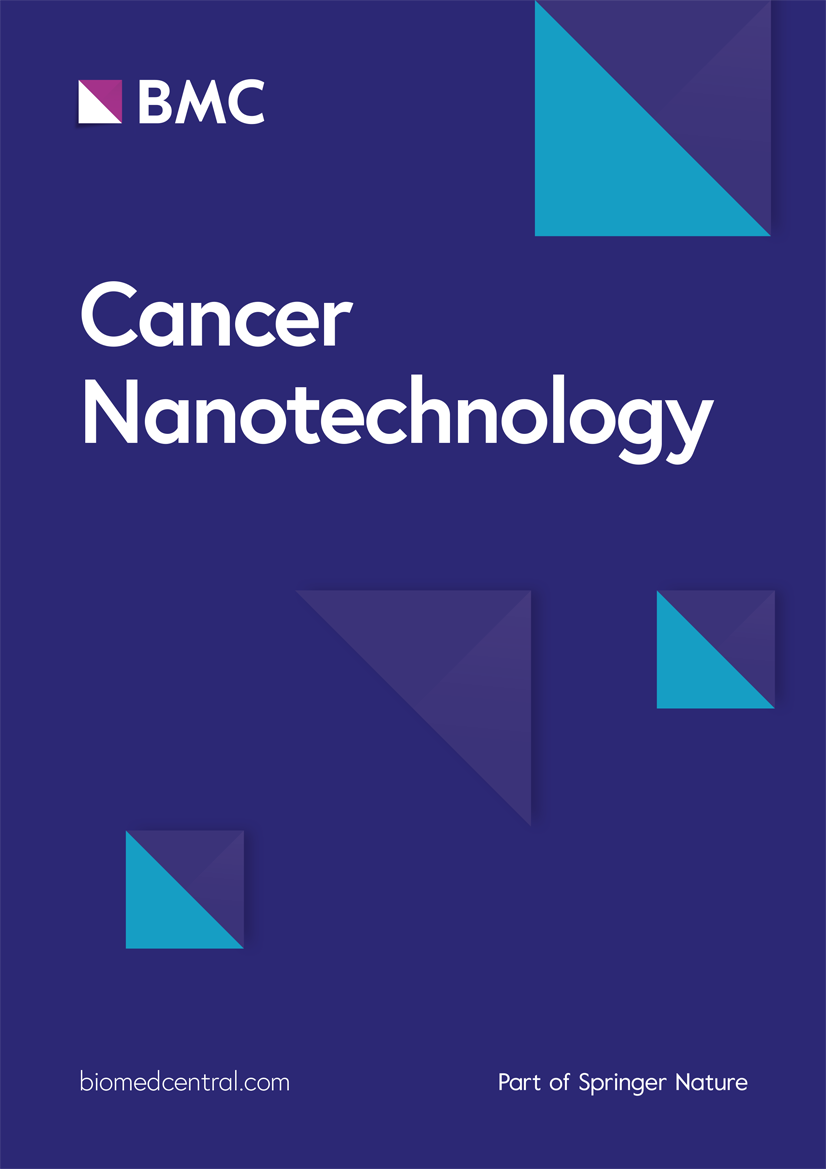pH-sensitive nanoformulation of acetyl-11-keto-beta-boswellic acid (AKBA) as a potential antiproliferative agent in colon adenocarcinoma (in vitro and in vivo)
IF 4.8
2区 工程技术
Q2 NANOSCIENCE & NANOTECHNOLOGY
引用次数: 0
Abstract
Developing a drug delivery system that can transport a higher concentration to the target cells can improve therapeutic efficacy. This study aimed to develop a novel delivery system for acetyl-11-keto-beta-boswellic Acid (AKBA) using chitosan-sodium alginate–calcium chloride (CS-SA-CaCl2) nanoparticles. The objectives were to evaluate the antiproliferative activity of these nanoparticles against colorectal cancer (CRC) cells and to improve the bioavailability and therapeutic efficacy of AKBA. With an extraction efficiency of 12.64%, AKBA was successfully extracted from the gum resin of B. serrata. The nanoparticle delivery system exhibited superior cytotoxicity against HT29 cells compared to free AKBA, AKBA extract (BA-Ex), and 5-FU. Furthermore, the nanoformulation (nano-BA-Ex) induced apoptosis in HT29 cells more effectively than the other treatments. In vivo results showed that nanoformulation inhibited chemically induced colon tumorigenesis in mice and significantly reduced the number of aberrant crypt foci (ACFs). The developed CS-SA-CaCl2 nanoparticles loaded with AKBA extract exhibit potential as a potent drug delivery mechanism for the colorectal cancer model. Nano-BA-Ex is a promising strategy for enhancing the solubility, bioavailability, and therapeutic efficacy of BA derivatives. With its multiple effects on cancer cells and controlled drug release through nanocapsules, nano-BA-Ex stands out as a compelling candidate for further preclinical and clinical evaluation in CRC therapy.对 pH 值敏感的乙酰基-11-酮基-beta-乳香酸(AKBA)纳米制剂作为一种潜在的结肠腺癌抗增殖剂(体外和体内试验)
开发一种能将更高浓度的药物输送到靶细胞的给药系统可以提高疗效。本研究旨在利用壳聚糖-海藻酸钠-氯化钙(CS-SA-CaCl2)纳米颗粒开发一种新型乙酰基-11-酮基-beta-乳香酸(AKBA)给药系统。研究目的是评估这些纳米颗粒对结直肠癌(CRC)细胞的抗增殖活性,并提高 AKBA 的生物利用度和疗效。从蛇床子胶树脂中成功提取了AKBA,提取效率为12.64%。与游离AKBA、AKBA提取物(BA-Ex)和5-FU相比,纳米颗粒给药系统对HT29细胞具有更强的细胞毒性。此外,纳米制剂(nano-BA-Ex)比其他处理方法更有效地诱导 HT29 细胞凋亡。体内研究结果表明,纳米制剂抑制了化学诱导的小鼠结肠肿瘤发生,并显著减少了异常隐窝病灶(ACFs)的数量。所开发的负载有 AKBA 提取物的 CS-SA-CaCl2 纳米粒子具有作为结直肠癌模型有效给药机制的潜力。纳米 AKBA-Ex 是提高 BA 衍生物的可溶性、生物利用度和疗效的一种有前途的策略。纳米 BA-Ex 对癌细胞具有多重作用,并可通过纳米胶囊控制药物释放,因此是一种引人注目的候选药物,可用于对 CRC 治疗进行进一步的临床前和临床评估。
本文章由计算机程序翻译,如有差异,请以英文原文为准。
求助全文
约1分钟内获得全文
求助全文
来源期刊

Cancer Nanotechnology
Pharmacology, Toxicology and Pharmaceutics-Pharmaceutical Science
CiteScore
5.20
自引率
1.80%
发文量
37
审稿时长
15 weeks
期刊介绍:
Aim:
Recognizing cancer as a group of diseases caused by nanostructural problems (i.e. with DNA) and also that there are unique benefits to approaches inherently involving nanoscale structures and processes to treat the disease, the journal Cancer Nanotechnology aims to disseminate cutting edge research; to promote emerging trends in the use of nanostructures and the induction of nanoscale processes for the prevention, diagnosis, treatment of cancer; and to cover related ancillary areas.
Scope:
Articles describing original research in the use of nanostructures and the induction of nanoscale processes for the prevention, diagnosis and treatment of cancer (open submission process). Review, editorial and tutorial articles picking up on subthemes of emerging importance where nanostructures and the induction of nanoscale processes are used for the prevention, diagnosis and treatment of cancer.
 求助内容:
求助内容: 应助结果提醒方式:
应助结果提醒方式:


